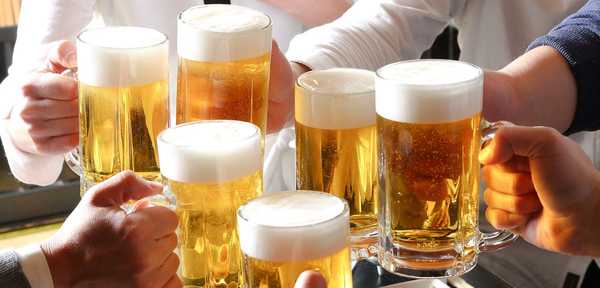Disclaimer: Underage drinking is real. It is prolific.
I’ll never forget the first party in 8th grade where two or three girls started drinking some beer in the field, and parents and police were called.
I’ll never forget the moment that my friends convinced me to take my first shot in her basement during my junior year in high school.
I’ll never forget the first door I knocked on as a Resident assistant at Duke.
“Are you guys drinking?”
“Not really.”
…
I saw the handle in the corner, and stood beside them, as they had to dump it out.
But I also can’t discard the inner conflict I felt serving in this role, supervising students one year younger than me, and enforcing federal regulations, and university laws that I too admit to breaking.
I’ve thought about this a lot, and have struggled to come to terms with the seedlings of hypocrisy settling within my mind.
The drinking age in the United States is 21.
I don’t have fake IDs like my friends, I’ve never blacked out, and I didn’t even go to Shooters last year… so it’s not that bad if I've had a few drinks before, right?
The act of a drinking is defined by the context: the intentions, the company, and the quantity of what is consumed.
Alcohol for college aged individuals usually looks something like this: a dark or poorly lit room, maybe a smell of musk, a stack of red solo cups, sodas – canned or bottled, cans of beer, and handles of alcohol.
The iconic red solo cups are symbolic of the raging and raving dude or dudette. At a rush event for living groups at Duke, one of my friends held a red solo cup in his hand. It only contained soda.
He said he felt pressure to drink, or at least look like he was drinking in order to impress the current members of the living group. So we did the wall lean for a bit, and one of the current group members came over to us and asked him what he was drinking. He replied:
“Oh! It’s just a mixed drink.”
We laughed about it – I still laugh about it now. But really, it’s sad, not funny.
Drinking can be used as a crutch, for people who feel uncomfortable in certain social situations, but it can also help make them “loose and goosey.” A fine line runs between requiring alcohol to feel comfortable entering social spaces and using alcohol as a supplement to the experience.
The very nature of a “pre-game” implies that the drinking is going to enhance the experience of the party or event, and drinking before going there “gets the night started earlier.”
If I ask you, at Duke, “What are you doing this weekend?”
A response shouldn’t be: “I’m staying in.” This implies that your weekend is a time reserved for “going out” only – drinking then becomes the experience – not the time spent with friends or social groups.
Why you are drinking matters.
Are you drinking because you feel awkward? Isolated? Forced to?
Are you drinking to get drunk?
Who you are with matters.
Do you trust these people?
Will they look out for you if something goes wrong?
Are these people actually your friends?
How much you drink matters.
Do you know your limits?
We deem the drinking age as arbitrary; we subvert it. The drinking age is 18 in the UK, and it permits Americans to experience another side of alcohol that doesn't necessitate binge drinking, ripping shots, or crowded and sweaty (although these can still be found too).
At New College, wine is served with dinner after a lecture from a visiting guest. It is a marker of formality, it brightens up some of the conversation, and prolongs the expanse of the nightly activities. Drinking does not have to be an ends in and of itself.
Do we have any responsibility to seek to change the drinking cultures we live in? As an RA, I face my conflict on the lines of a question of integrity. We know that students drink, and that they drink in the building.
How can we seek to change the drinking cultures? How do we promote healthy consumption of an act that is implicitly marketed as wrong, immoral, illegal?
I think the first step requires honesty. And honest implicates an ongoing conversation.
I worry about people wanting to "experiment" or upperclassmen/women looking to "take advantage" of first year students. I don't want records for the amount of alcohol related transports to increase this fall. These are challenging topics and realities to face. But maybe we can start by confronting the questions that matter most: Do I choose to drink? If so, why?
Not that it matters, per say; but check your motivations, maybe something interesting rests beneath the surface.
Be honest. Talk about it. Be an example.





















